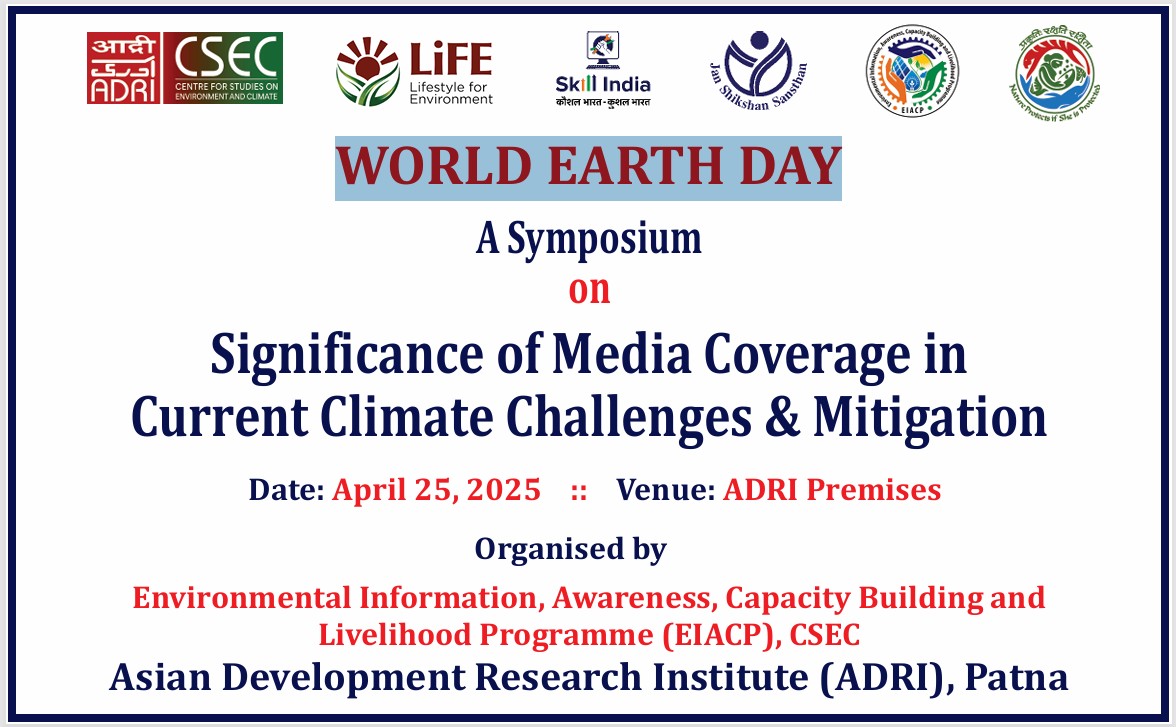Events of CSEC

He went on to report that the frequency of cold waves is decreasing in Bihar even as that of heat waves has surged from the year 1961 to 2001. Also, Bihar is seeing more warm nights which are causing rising heat stroke cases. Rainy days have become fewer even as torrential rainfall over shorter periods of time are being recorded. He attributed this to anthropogenic activities like deforestation, air pollution, mining, release of greenhouse gases into the atmosphere, etc.
Dr. Abhinav Shrivastava, an expert of Environmental Toxicology and Public Health Management at Patna’s Mahavir Cancer Sansthan and Research Centre optimistically held out that we can deal with all impacts of climate change ― be it flooding, the micro-plastics issue, heat stress, etc. ― if the power of the media is harnessed properly. It is the media which gets each and every person to be aware of how interventions to mitigate climate change are being made in fields like health, agriculture, education, etc. It becomes possible for policy-makers to team up with researchers only because of an effective media. He added that nearly 25,000 new cases of cancer are getting registered annually in his institute. Gall-bladder cancer is rampant among Bihari males and breast cancer in Bihari females. For pro bono early screening of gall-bladder cancer cases, the public is being encouraged to visit state-wide camps even if they have minor stomach aches, constipation, etc. “Gall- bladder cancer is a silent cancer without any symptoms”, he said.
Earlier, Dr. Ashmita Gupta, Member-Secretary of ADRI made the Opening Address and said that we should be conscious of what choices we make in our daily life-style, beginning with what clothes we choose to wear, so as to check adverse climate change outcomes. Senior Journalist Shree Jai Shankar Bihari called for the use of simple language by the climate scientists when briefing the media about any impending disasters. This will go a long way in taking effective action for resisting these impacts. He also requested scientists to post their findings and advisories on social media platforms.